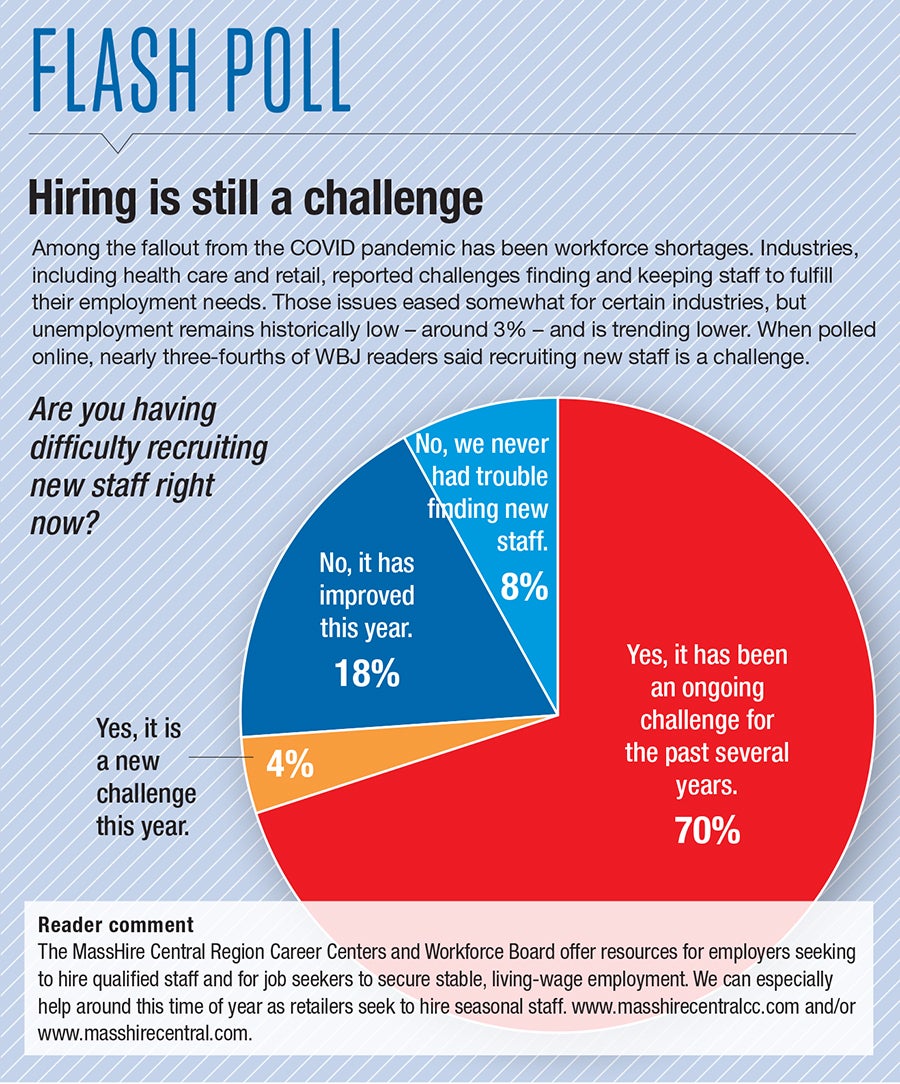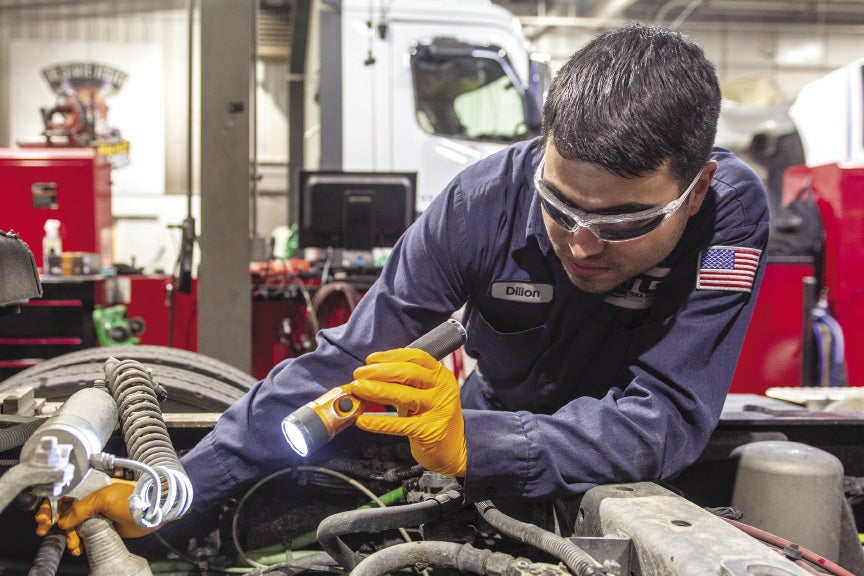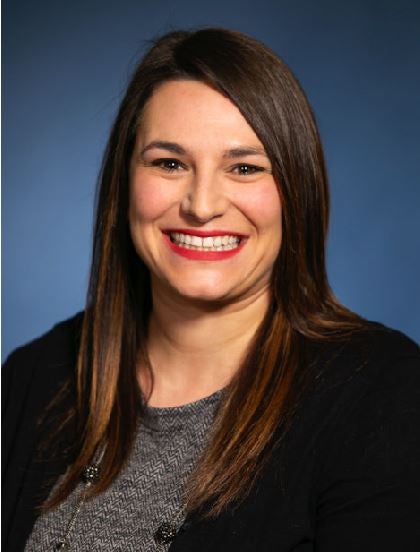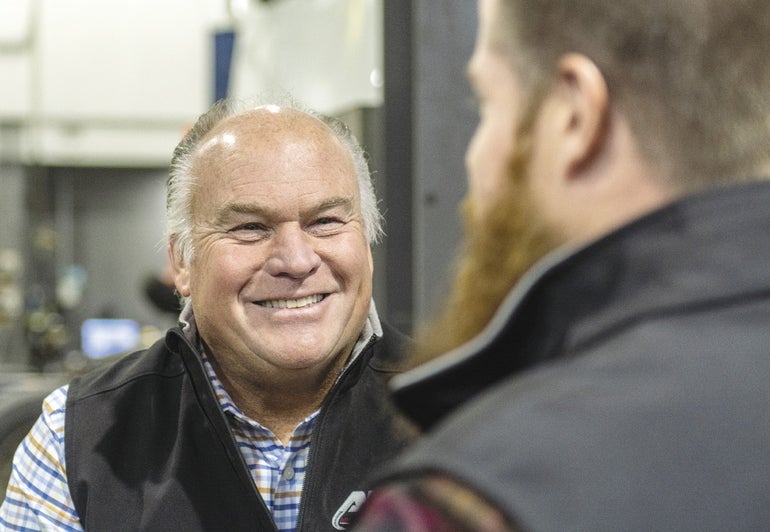Amid a tight labor market, industries must be innovative to keep operations moving.
Get Instant Access to This Article
Subscribe to Worcester Business Journal and get immediate access to all of our subscriber-only content and much more.
- Critical Central Massachusetts business news updated daily.
- Immediate access to all subscriber-only content on our website.
- Bi-weekly print or digital editions of our award-winning publication.
- Special bonus issues like the WBJ Book of Lists.
- Exclusive ticket prize draws for our in-person events.
Click here to purchase a paywall bypass link for this article.
At an individual and population level, the lowering of unemployment rates in Massachusetts is a positive. In September, the rate came in below 3%, nearing historic lows.
As a result, however, employers across almost every industry are challenged to find employees, and will continue to be hard-pressed to hire workers they need to fuel their growth, said Christopher Geehern, executive vice president, public affairs and communications at Associated Industries of Massachusetts.

“The labor market remains extraordinarily tight,” said Geehern. “It’s challenging virtually every industry.”
In feedback from member businesses at AIM, by and large the biggest worry is finding employees, said Geehern. It’s a persistent and serious issue, he said.
How the state of Massachusetts will deal with it is dependent on large scale factors. Housing costs play an important role, said Geehern, causing employees to seek employment out of areas that charge a premium. He expects that, with change in interest rates and the inevitable slow-down of the economy, the cyclical nature will slightly ease the hiring difficulties, but the longer term structural issues will remain.
The most angst, though, is coming from the transportation, hospitality and foodservice industries, he said.

Strategic, intentional programs are keeping some Central Mass. companies in challenging industries staffed and above water. These programs require investment, foresight, and buy-in.
Advantage Truck Group, based in Shrewsbury, is a freightliner service and sales network that operates throughout New England. The labor market for all roles in the trucking industry has been a challenge even before the tightening of the labor market, said Kevin Holmes, ATG president and CEO.
“Our business is not sustainable without skilled labor. Not just technicians, it’s the entire labor force,” said Holmes.
The industry has been struggling to attract new workers for the past 10 years, said Holmes. A focus on a college education as the be-all-end-all and the fact that transportation isn’t a “sexy” industry have posed challenges long before this tightening of the labor market, but are exacerbating the issue, he said.
To try to bring new hands into the operation, and get them equipped with the skills to work, ATG opened an in-house training center in 2017 that provides on-staff trainers who can get those new to the industry up to speed. Six years in, the center is playing a critical role in keeping ATG staffed.
“Had we not done so, we would be meeting the perils, and having to decide what to do now,” said Holmes.
The importance of the transportation industry to the flow of life is underrecognized, in Holmes’ perspective.
“During the pandemic, skilled drivers were called frontline workers. It took the pandemic to recognize that, but skilled drivers have always been on the frontlines,” said Holmes.
Disruptions to the transportation industry cause disruptions at every level of the supply chain, and there’s little room for error. In recent years, ATG has doubled down on its efforts to keep building the workforce, getting involved with local junior high and high schools, concentrating on getting more people interested in roles in the industry to prevent tight labor markets like this one from creating insurmountable issues.

ATG’s Holmes wants to change the narrative about skilled trade jobs to change the prospects for the trucking industry. The lack of people entering the field and the lack of people aware of it overall create real problems, he said. In an era of crippling student loan debt, these skilled trade roles should be promoted, in Holmes’ perspective.
“We are not looking to just pigeon-hole skilled individuals,” he said. “We are looking to broaden their horizons.”
Healthcare challenges
Healthcare, like transportation, is a round-the-clock endeavor. UMass Memorial Health in Worcester, the largest health system in Central Massachusetts, saw some challenging years during the pandemic when it came to recruitment of caregivers and employees, said Kaitlyn Urlaub, vice president of talent acquisition at UMass Memorial.

Since 2020, the hospital system has seen an increase in hiring of 65%, but it does not mean that the hiring team is out of the woods, saud Urlaub.
“The market is still really fierce for qualified and experienced healthcare talent,” she said.
UMass Memorial is focused on speeding the hiring process and on applicant experience to try to bring more individuals in, she said. Applicants will hear from a member of the recruiting team within 48 hours of applying, according to Urlaub. It’s a way the system is trying to differentiate itself from other organizations while the number of people available for jobs across the board is low.
The system is also working to bring in untapped talent in the state, including the immigrant population, refugees, and a pipeline of youth interested in healthcare careers. Creating career pathways for entry level employees to learn skills while in positions at the organization is a tenet of UMass’s approach, said Urlaub.
“They help us with roles that we know are really challenging to fill,” said Urlaub, pointing to the employer’s many technician positions.
Hospitality bright spot
At Great Wolf Lodge in Fitchburg, general manager Henry Tessman says they aren't seeing significant difficulty in filling roles related to the labor market, but that initiatives and practices to keep applications up and employees in positions remain important.
Great Wolf Lodge in just the past six months recovered to pre-pandemic staffing levels, said Tessman. The hotel was closed for 15 months of the pandemic, and it took since reopening to achieve full employee counts of 725 to 750, he said. Business is fairly steady year round, he said, with 80-90% occupancy the average.
“We spend a lot of time, energy, and money on retention,” said Tessman.
The trend at Great Wolf Lodge matches what Christina Pappas, president and CEO of the Massachusetts Lodging Association is hearing from members.
The association polled members in October, and respondents indicated that the pipeline for frontline hospitality staff is good, she said. The hotels have been actively recruiting for several cycles, and with the hotel business bouncing back after pandemic restrictions, staff are returning, too, she said.
“People are ready to jump in and have a job again,” said Pappas.
If there’s difficulty in recruiting across the board, it is in hiring for managerial roles in hospitality rather than more entry-level positions, according to Pappas.

